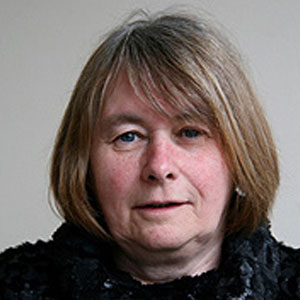Everyone has the right to grieve for the loss of a loved one and well-meaning attempts to protect people from the realities of death are misplaced. Sue Pemberton reports
A regular topic of discussion for members of self-advocacy group REACT is how they feel when someone they knew or loved dies.
Others often try to protect them from the realities of dying and death. Although people mean well, these actions are misguided – everyone has the right to feel, grieve, talk about and remember their loved ones, as well as time to recover.
Taboo
Loss and bereavement are often a taboo subjects in English culture, but the REACT team, a group of self-advocates in Lancashire, along with volunteers from other learning disability organisations, held a conference recently to address this very subject.
Around 70 people attended, the majority of them with learning disabilities. Workshops and discussion groups allowed people to explore thoughts and feelings in a variety of areas around death and dying.
The opening speaker, a self-advocate from Blackpool, shared her very moving story about her partner’s death and how she had been unable to spend time with him as his last few days approached, as he shared a home with other people with learning disabilities and it was thought to be inappropriate that she stayed there.
She told this story so others would not be prevented from having loving relationships with people, particularly during the most difficult times like the end of life.
There were workshops on “Bereavement circles” (friends and family who come together to support the person through a period of loss), “Dealing with loss and talking about it” and “How to plan a funeral”.
These were jointly run by the self-advocates who were passionate about bringing information to others, and confirming that it was OK to talk about your loss and experiences.
Many people openly discussed how they felt when a loved one died, and shared very personal experiences they had not spoken about before.
Once given the forum and the opportunity to discuss these personal issues in a safe environment, people had the confidence to open up about thoughts and feelings they had kept quiet about. There were discussions about how “bottling up” feelings can affect mental health in a negative way.
Practicalities around death
A specialist will writer from a local firm of solicitors encouraged people to think about what they wanted to happen to their possessions and who they wanted to have them after they died.
Funerals were discussed, including who would be asked to arrange one, whether people would prefer a religious ceremony, if they wanted a burial or cremation, and whether to have flowers and singing.
A session with a funeral director, who was called away to deal with a bereavement and was replaced by his wife, discussed what happens at a funeral, and issues to think about. There was also the opportunity to hear from Cruse Bereavement Care.
A welcome discussion
People appreciated the opportunity to discuss this subject. When people die, those left behind need time and space to process things, to think, to get help, to talk and to feel supported, comforted and informed. Some deeply moving comments illustrated how powerful and empowering the day had been for people:
“I learnt it is ok to show my emotions.”
“I learnt about being able to go to my dad’s grave and having a memory box.”
“Thinking about mum and dad.”
A quote from someone who helped to organise the conference really sums up how a topic that can be upsetting or distressing can, if presented appropriately, lead to a very positive, engaging experience:
“What was surprising was that despite a really tough topic people went away feeling energised and excited about the work that can now be done with self-advocates, providers, families, supporters and other professionals to really improve people’s quality of life in relation to this topic.”
A spiritual close and the next steps
In a surprising and unplanned close to the conference, a local minister arrived, and the whole group joined together to close with a prayer. Fittingly, this ended the day on a spiritual tone.
So, what is the next move for the self-advocates? They intend to develop an action plan to take to the Lancashire Learning Disability Partnership Board. The topic will be on the agenda at the self-advocates’ conference in Blackpool, and providers are being encouraged to sign up to discuss death and dying, and what people want to happen to them at the end of their lives.
What can be quite a sombre subject has brought about changes in the way people think about dying, and many self-advocates have since shared the fact that it has prompted them to make a will. Fewer have organised a funeral plan, but awareness has been raised. n
l For more information about REACT www.caritascare.org.uk/for-people-with-disabilities/research-in-action-react/
Sue Pemberton is chief executive of Integrate (Preston & Chorley)ltd
www.integratepreston.org.uk

